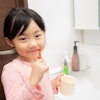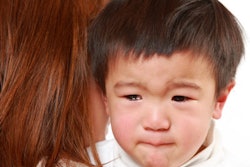
Family structure may partly influence whether children experience dental fear and anxiety, according to the results of a new study. Researchers found that children with siblings feared the dentist more than only children and children from single-parent households.
The researchers conducted surveys with hundreds of schoolchildren and their parents to see how parenting styles and family structures influenced children's dental fear and anxiety. Their findings were published in BMC Oral Health (June 4, 2018).
Preventing and intercepting dental fear and anxiety during childhood are considered as critical approaches for improving people's oral health and dental experience, wrote the authors, led by Lingli Wu from the department of dentistry at the Northwest University of Nationalities in Lanzhou, China.
Family influence on dental fear
Children with strong negative feelings toward dentists and dental treatments may experience treatment delays and worse oral health. Furthermore, dental fear during childhood may lead to avoiding the dentist as an adult.
Therefore, the researchers wanted to know whether family factors might influence children's dental fear and anxiety. To find out, they sent questionnaires to families at three government-funded, coeducational elementary schools in Hong Kong.
The questionnaires asked about family demographic and socioeconomic information, parents' dental fear and anxiety, parenting and family styles, and children's dental fear and anxiety. Just over 400 families with children in grades 4 to 6 participated in the study.

Nearly one-third of children said they feared the dentist, the researchers found. Children with siblings were significantly more likely to experience dental fear and anxiety than their peers who were only children.
Sibling birth order did not affect dental fear experience, the researchers found. However, boys with siblings had significantly higher dental fear and anxiety than boys without siblings.
“Family structure and presence of siblings are significant determinants for children's [dental fear and anxiety].”
"Apart from personality traits, siblings' past dental experience and their positive or negative modeling might play an important role in shaping children's perception of dental care," the authors wrote.
Children from two-parent households also were more likely to experience dental fear and anxiety than children from single-parent households. This phenomenon was more prominent with girls, the researchers noted.
"In single-parent families, children may become more independent and are more likely to grow maturity and resilience," the authors wrote. "Given these characteristics, they may cope better with challenges and stressful situations, such as a dental visit."
Results may not be generalized
The researchers did not find any significant associations between children's fear of the dentist with parents' fear of the dentist or parenting styles. However, they also noted that their study focused exclusively on children from Hong Kong and that other, primarily U.S.-based studies have found a significant association between parents' dental fear and children's dental fear. This reinforces that the results of this particular study may not be extrapolated to other populations.
Furthermore, parents may have deliberately chosen socially desirable answers, rather than accurate answers, for the surveys, the researchers noted. Nevertheless, the study appears to show that a number of family factors may influence children's fear of the dentist.
Dental fear and anxiety are complex phenomena that involve many other factors, such as child's personality traits, past dental experiences, and other life incidents and events, the authors concluded. "Family structure and presence of siblings are significant determinants for children's [dental fear and anxiety]," they wrote.



















